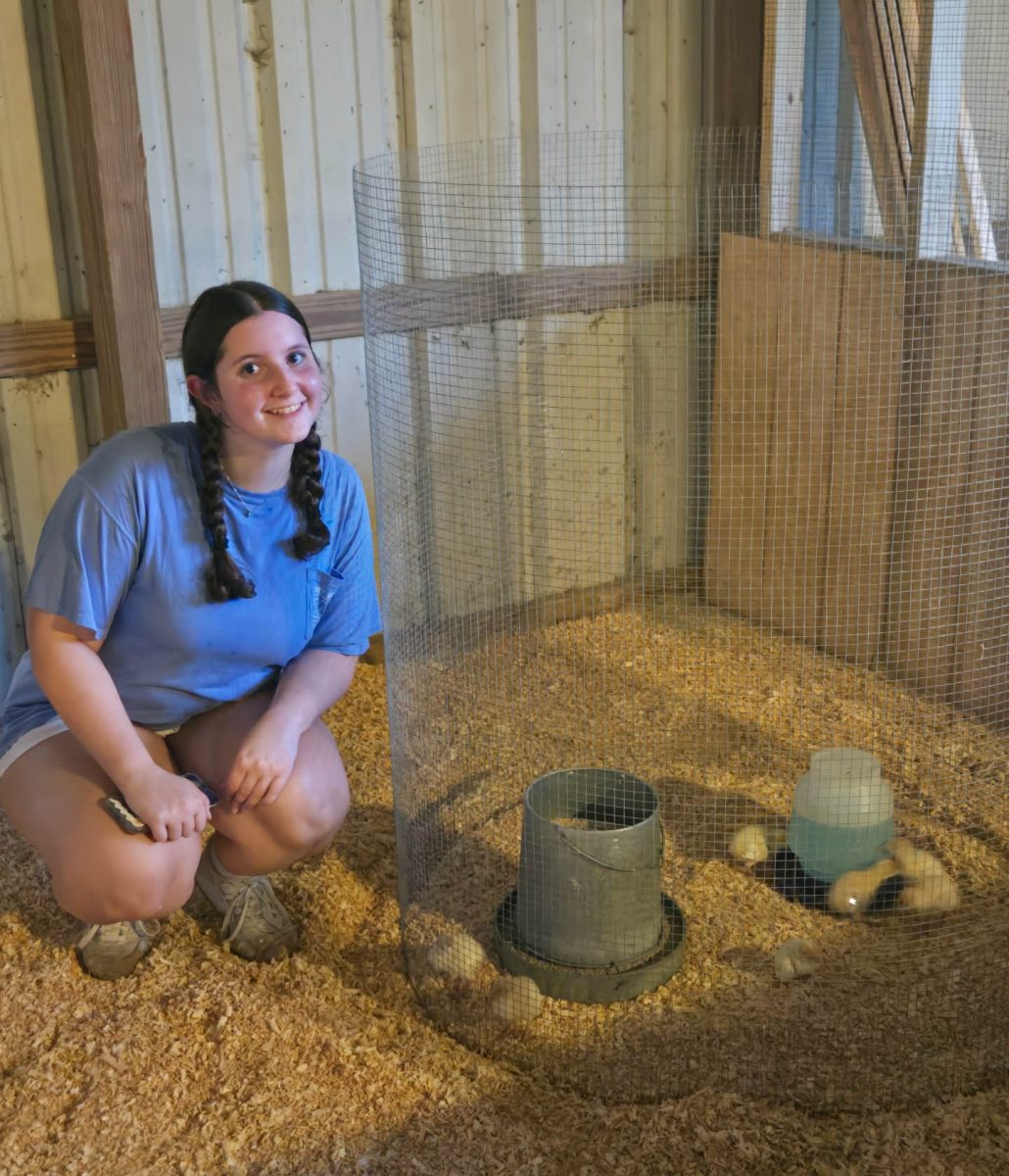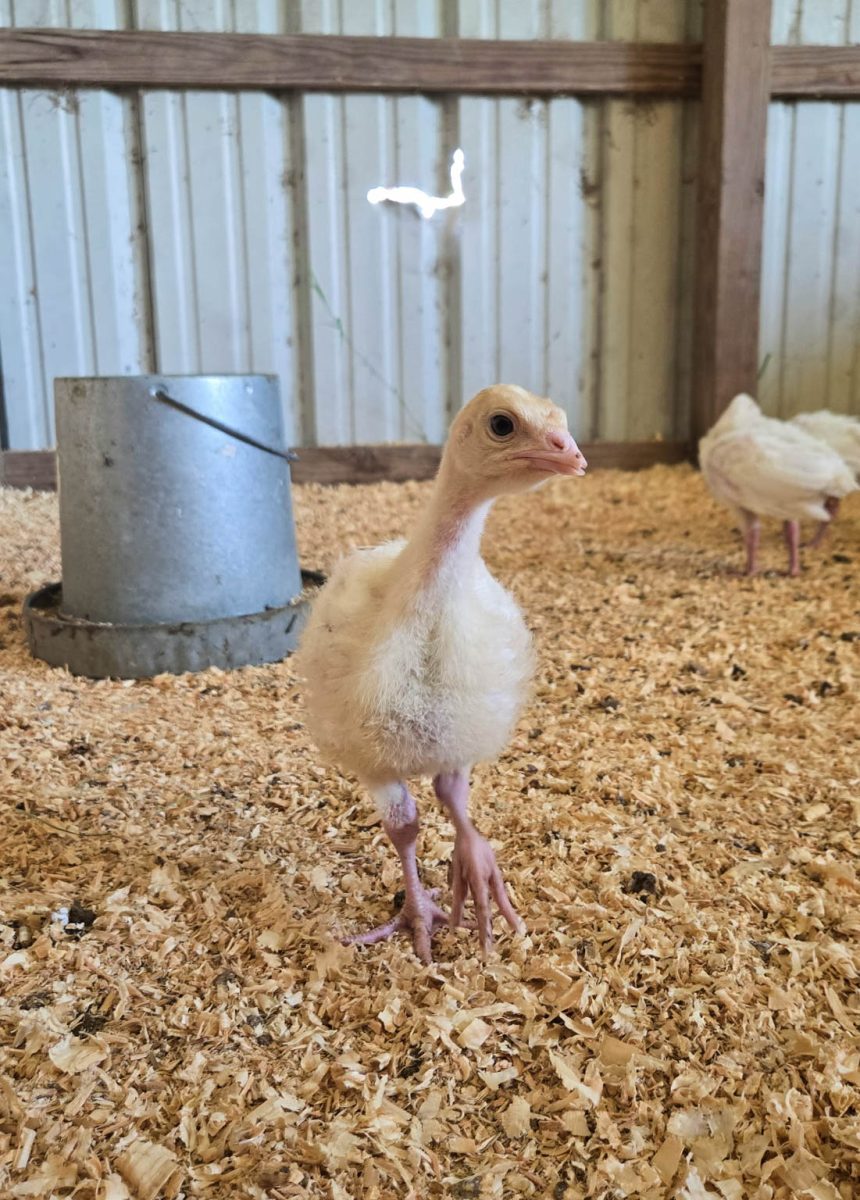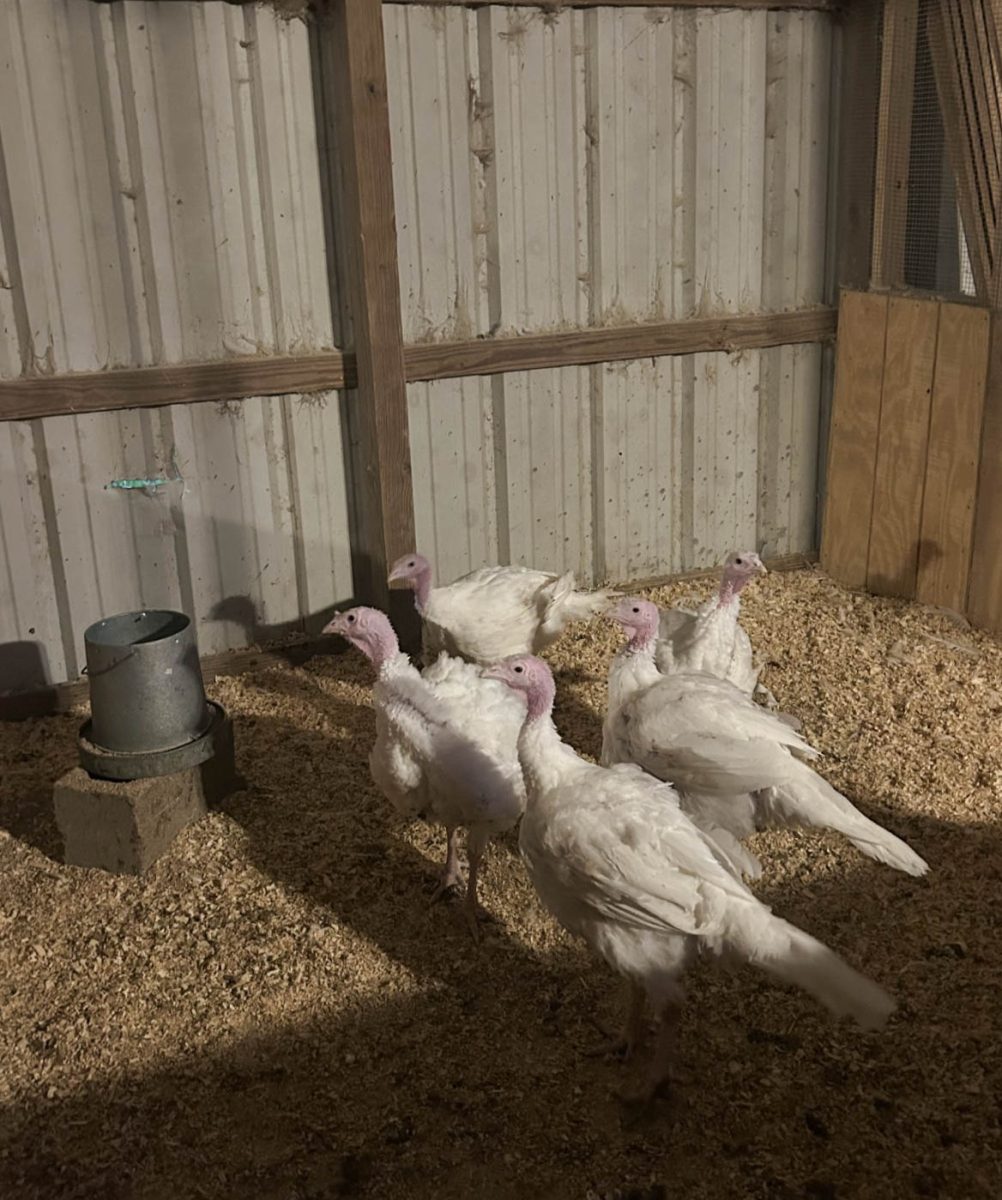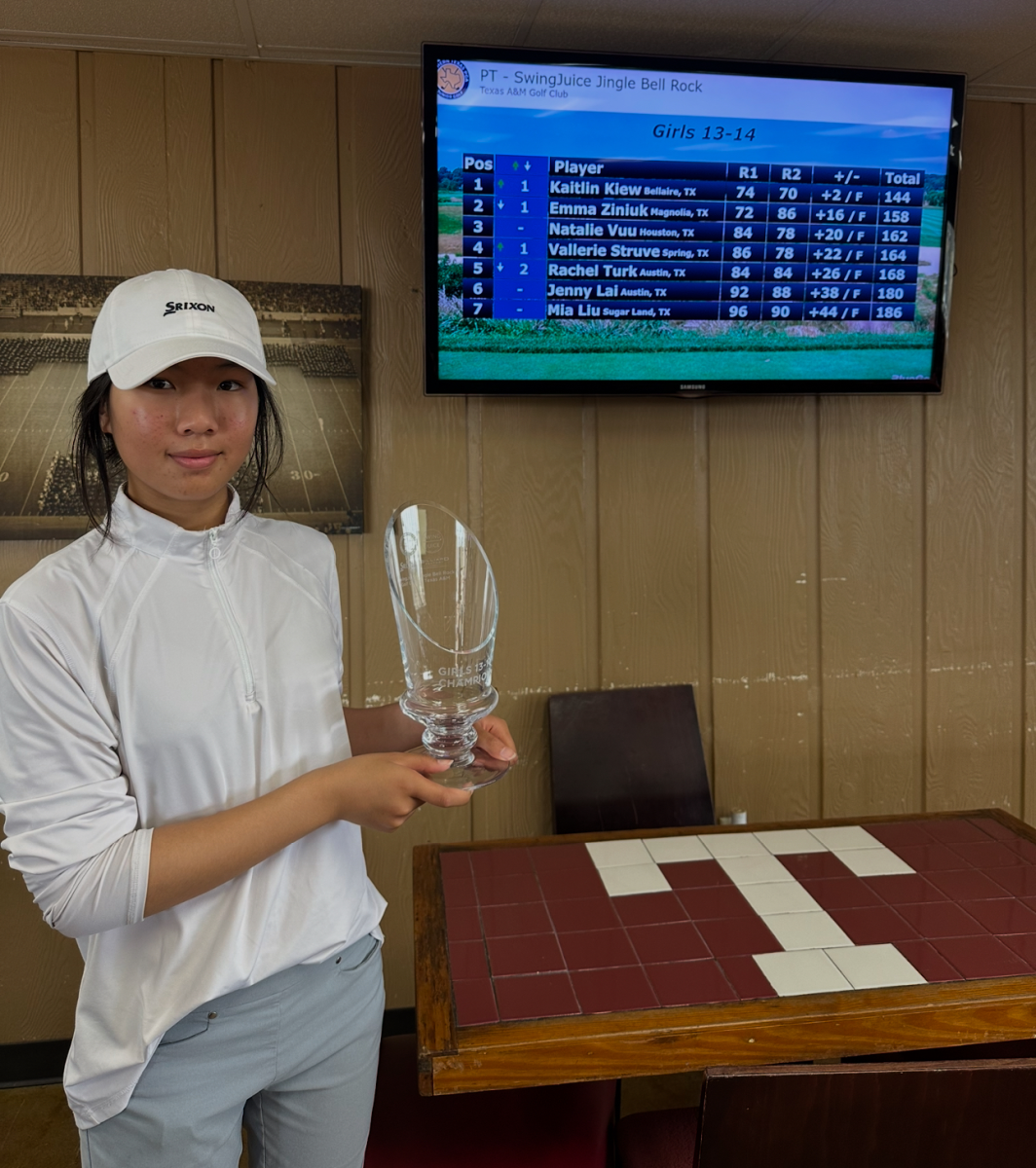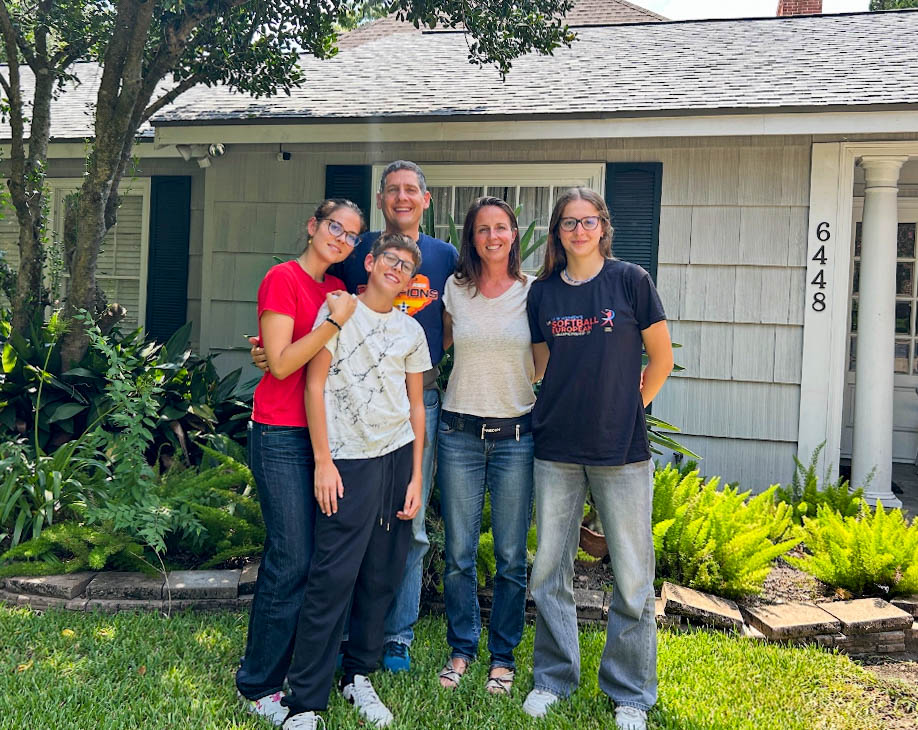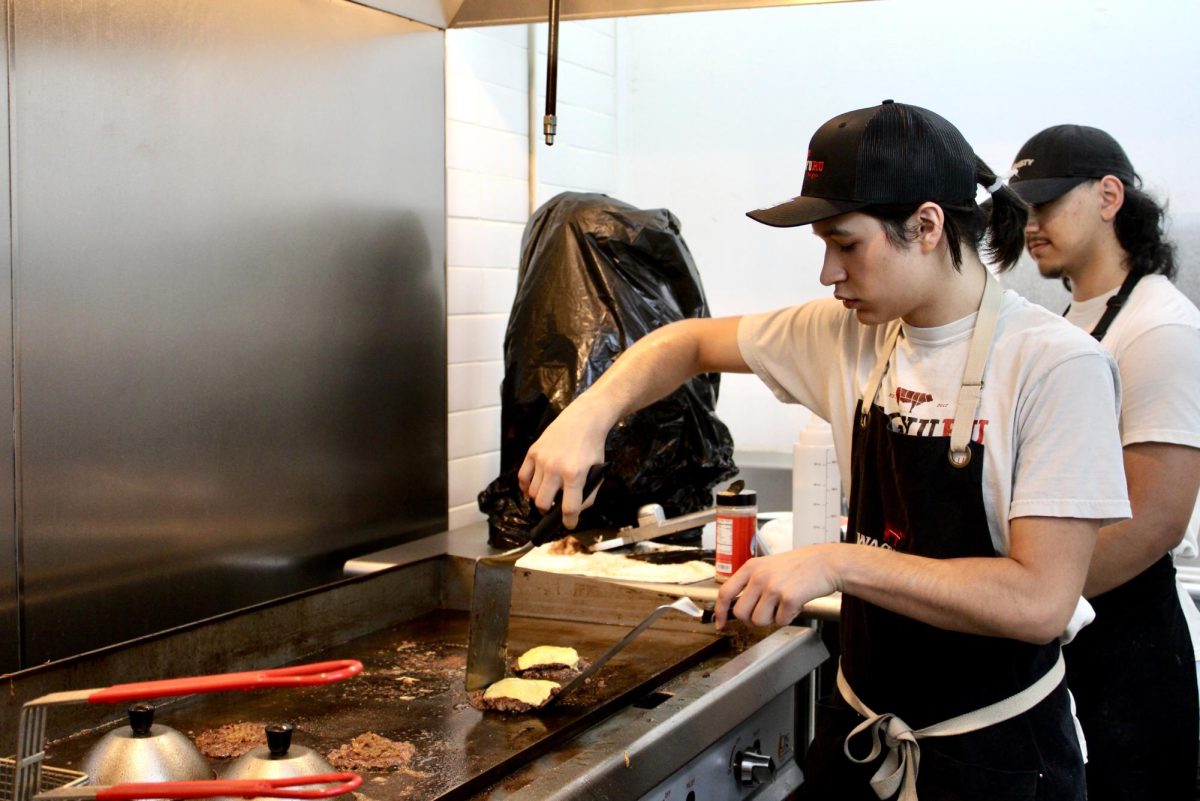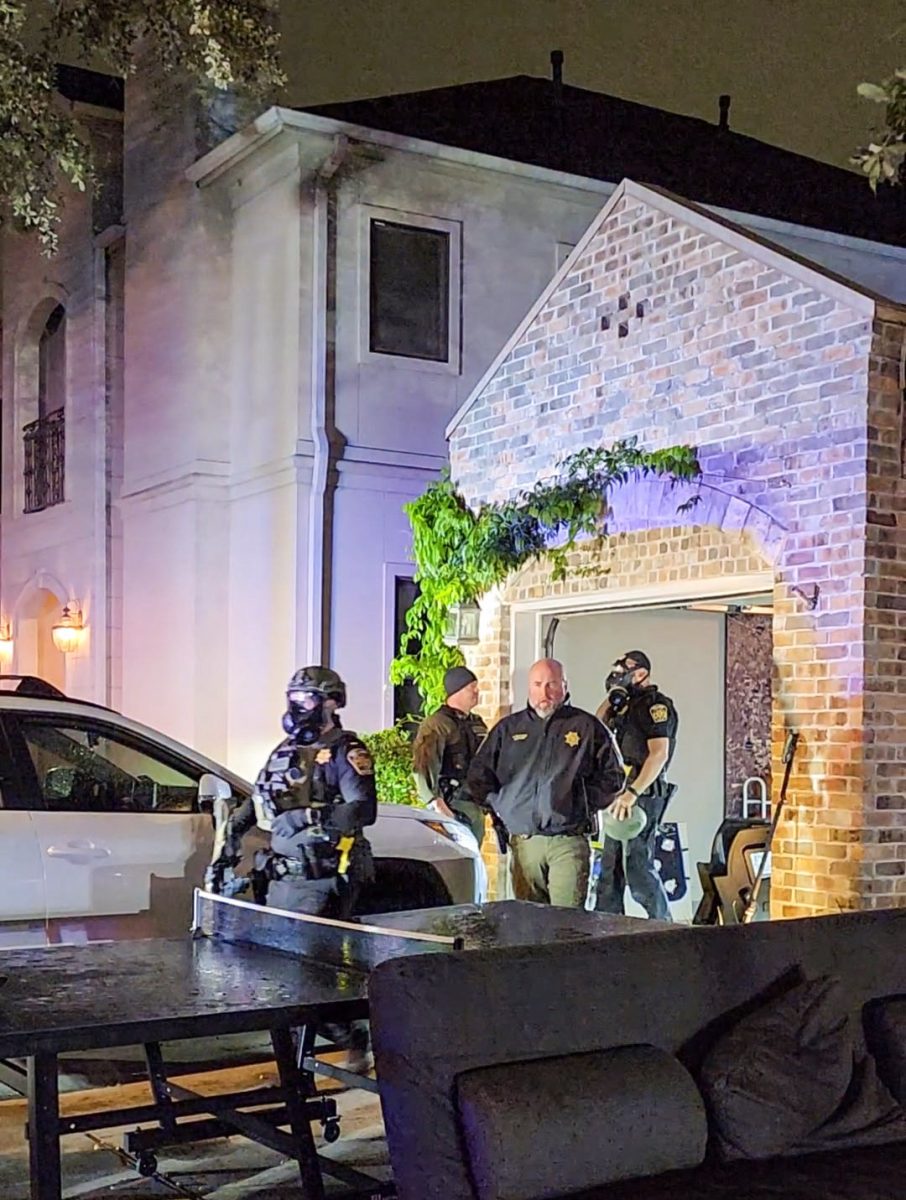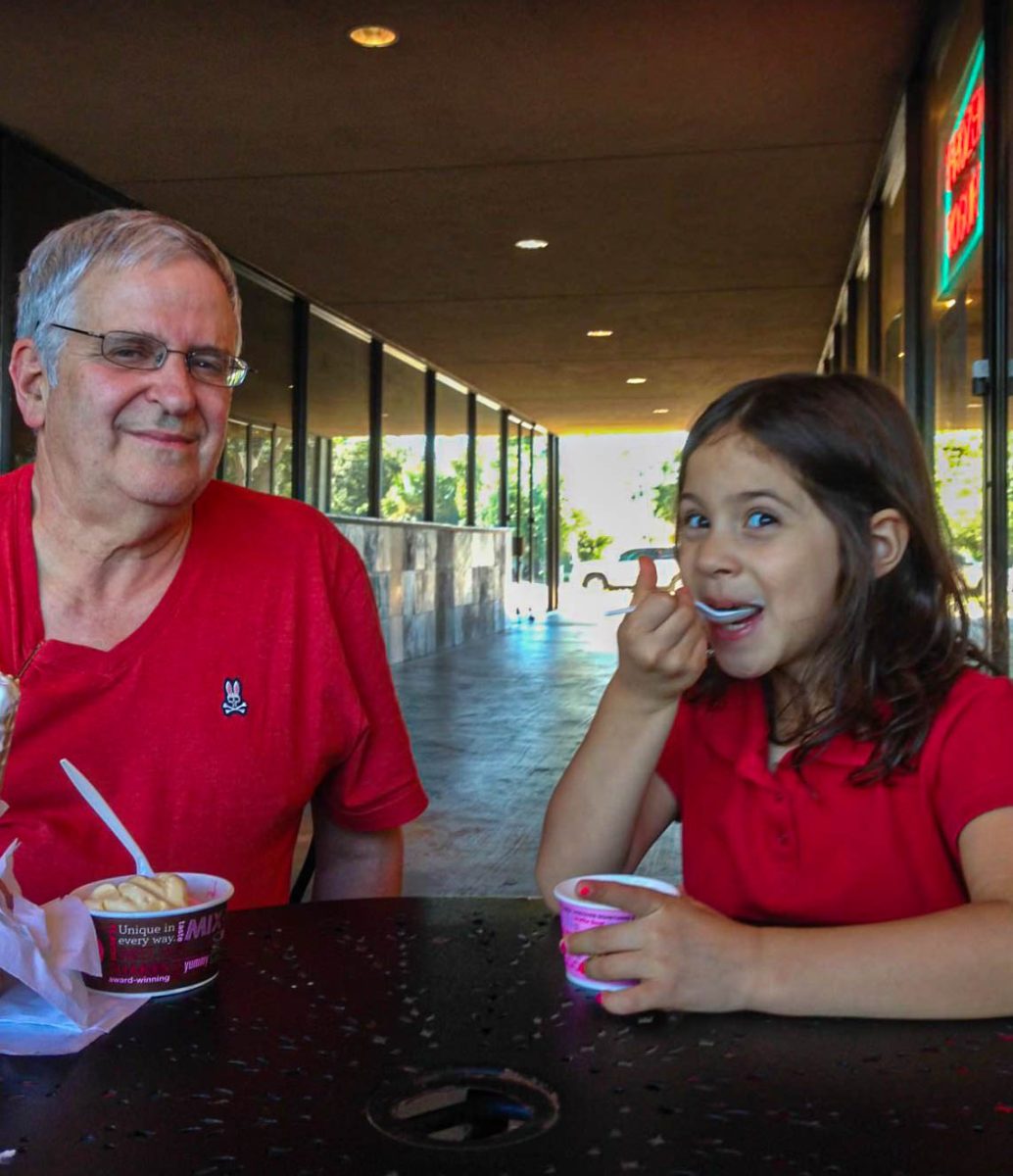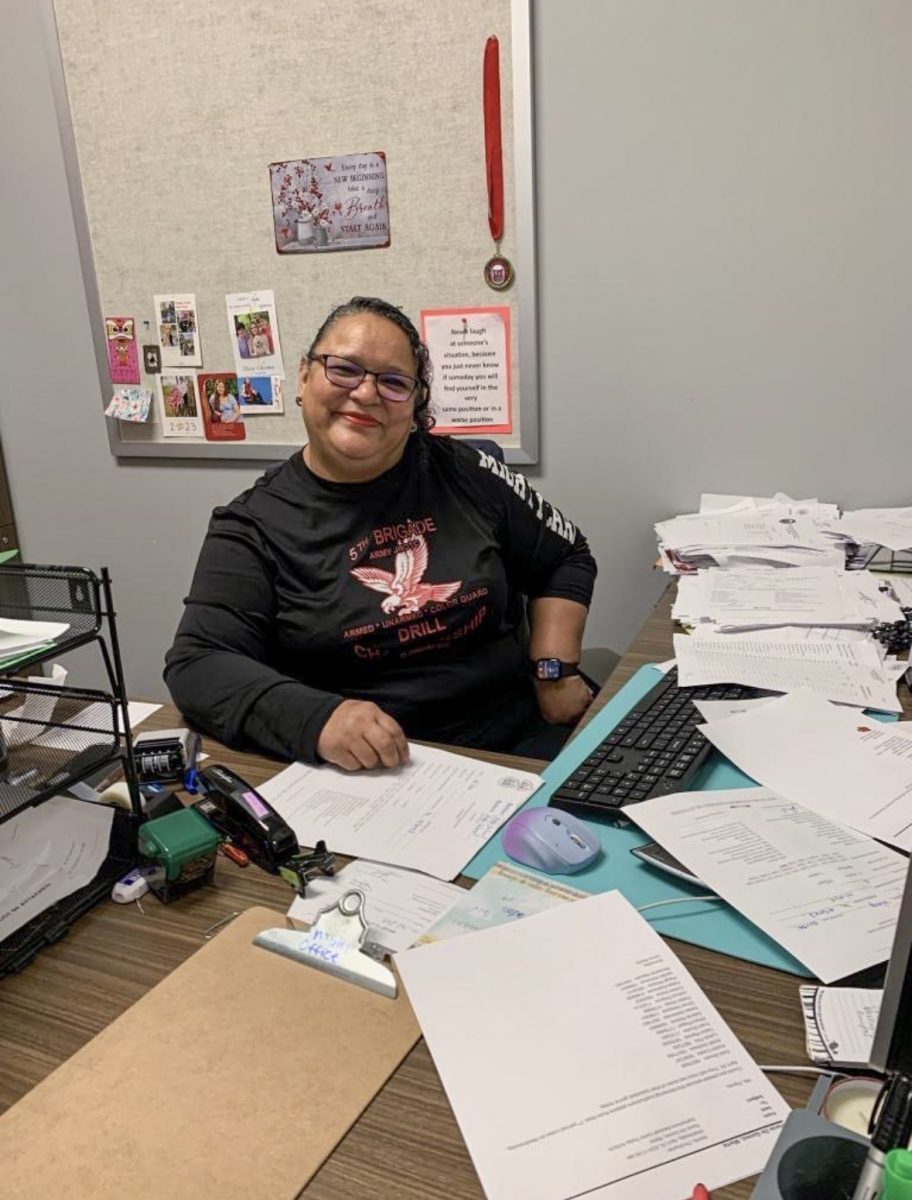You can find her at the barn every morning watching the sunrise.
She’s not forced to, but her animals rely on her.
Junior Liat Lutfak began exploring Future Farmers of America starting her sophomore year. Agriculture, Food and Natural Resources is one of the seven Career and Technology Programs offered at Bellaire. FFA follows that track for graduation and gives students the opportunity to raise and care for their own livestock.
“My cousins did FFA in Austin, and so when I needed to switch for my classes, I thought [agriculture] seemed really cool,” Lutfak said. “I was originally going to do floral design, but then when I got into it and started I realized I want to do animal science.”
Students must receive four CTE credits to graduate with the CTE diploma.
“I’m currently taking small animal management and livestock production,” Lutfakt said. “I needed to double up on those courses so I can graduate with a CTE on time to get the certificate.”
In 2024, FFA decided all agriculture students must have a FFA membership. This allows students to benefit from awards, scholarships and incentives.
“We decided to become a fully affiliated chapter before it became required,” agriculture teacher Phil Pacia said. “We went from a chapter of 50 partially-affiliated students to a chapter with 360 students who are actively paid for and involved with FFA.”
Lutfak has been raising five turkeys this fall. She hopes to auction and sell them at local and county fairs and competitions. She pays for everything regarding her turkeys, including facilities, water, bedding and heat lamps or fans.
“I plan to save up money I make from selling to [raise] a different animal next year,” Lutfak said. “I get such great experiences and have amazing opportunities by being able to provide for my turkeys.”
Lutfak finds herself at the barn up to twice a day to ensure her turkeys are well-fed and have enough bedding. She wakes up at 6:25 a.m. to make sure she has enough time to go back to her house before going to school.
“Sometimes I just like hanging with the turkeys because they’re quirky and each have [their own] personalities,” Lutfak said. “I enjoy seeing them grow from a baby and how big they grow each day.”
The Harris County Fair and Rodeo is Lutfak’s current focus as this will be her first formal competition and showing. Lutfak will show one of her hens on Oct. 23. The Harris County Fair and Rodeo only allows female turkeys to be shown since they grow and mature faster than male turkeys, enabling them to be sold sooner. Lutfak will also be scored on showmanship. Judges can ask questions such as ‘What do you feed your turkey?’ or ‘How do you take care of them?’
“One part of the fair is you hold the turkeys up by their legs because the judges have to feel the breasts to see how meaty they are and make sure no feathers are broken,” Lutfak said. “I’m nervous because I’ve never shown an animal and there are lots of rules to follow.”
Winners of the fair will receive a belt buckle and a $1,000 cash prize, as well as varying scholarships. Fairs and FFA-related activities provide valuable college exposure for students who hope to continue in agriculture.
“Harris County is a freezer sale, meaning the fair has already established the selling prices,” Lutfak said. “There’s a set price you sell the turkeys for if they do get bought. For me, all my turkeys will be sold for $150.”
Back in August, all of Lutfak’s turkeys got avian pox, a real threat to her prize money if not treated properly. The avian pox were first present in the turkey coup next to Lutfak’s but spread due to a shared fan used for ventilation. Lutfak first realized when she saw scabs beginning to grow around the face and neck of the turkeys. Avian pox doesn’t affect the turkey’s ability to be sold as long as they are gone in time for the show and selling.
“Mr. Pacia gave us medicine to help the scabs,” Lutfak said. “[I knew] the medicine was working because the scabs were falling off, and the turkeys continued to grow. It got pretty nasty but within a month it went away.”
Pacia has played a “crucial” role in Lutfak’s passion for animals and agriculture.
“He’s such a goofy guy, and he’ll make you crack a smile all the time,” Lutfak said. “He’s so encouraging and if you want to do something, he’ll make it happen. He always pushes me to do and try more.”
Lutfak was a student in Pacia’s class for her principle of agriculture class sophomore year. She had no outside of school commitment until junior year, but Pacia quickly realized her dedication to continue to learn.
“[Lutfak] came into my class this year highly motivated and quickly got involved deciding to raise turkeys,” Pacia said. “I try to model a smaller version of the production of livestock to my students.”
Lutfak has also taken her best friend, junior Alejandra Jasso, to the barn with her.
“She is always inviting and has taken me to the barn multiple times just out of her love for taking care of animals,” Jasso said. “She is super passionate about [FFA] and her dedication is something I really admire because she’s doing what she loves to do everyday.”
Being able to explore the agriculture outlet has led Lutfak to think about what she wants for the future. Texas historically had the largest membership enrollment rate and number of chapters in the nation, allowing Lutfak to be well prepared for the next step.
“I want to go to a college with a good veterinary program and then go to veterinarian school,” Lutfak said. “I know A&M has a good program as well as Texas Tech. Working with animals is something I want to continue to do because it’s so cool to have something of my own and be able to raise it.”


